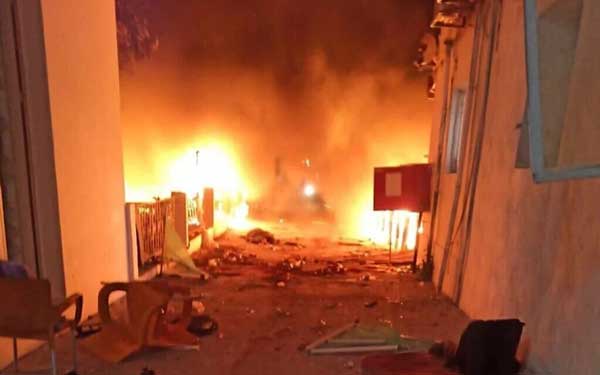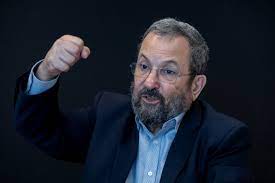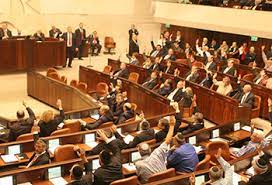“It will come about on that day
that I will make Jerusalem a heavy stone for all the peoples;
all who lift it will injure themselves severely.
And all the nations of the earth will be gathered against it.”
Zechariah 12:3 NAS

Pledging Total Victory over Hamas
Israeli Prime Minister Benjamin Netanyahu is still pledging “total victory” against the Palestinian jihadists of Hamas.
“We will finish the task with our brave soldiers,” he said, “and ensure the civilian population has corridors to safety.”
For the last few months, Israel has been preparing to extend its activities to Rafah, Gaza’s south most city, with the intent to continue its full-scale operation in the Gaza Strip, ‘paving the way for a shift to a lower-intensity phase of targeted airstrikes and special forces operations.’ According to an Israeli military chief, this will happen after significantly damaging Hamas’ last remaining stronghold.
In order to achieve victory, Israel must dismantle Hamas’ control in Rafah. However, world leaders are more concerned about the humanitarian conditions in Rafah even though Israel encourages Gazans to evacuate their homes in order to avoid civilian casualties. While planning Operation Rafah, targeting Hamas fighters, command centers, and tunnels, the IDF is also taking extraordinary measures to avoid civilian casualties.
“There were 24 regional battalions in Gaza – we have dismantled 18 of them. Rafah is the last Hamas stronghold,” a top military Israeli stated. A Hamas official based in Qatar told the press that some 6,000 terrorists have been killed in the Gaza Strip since October 7; about half of the 12,000 IDF claims to have been killed. The Hamas source claimed the terrorist group is prepared for a long war in Rafah.
“Prime Minister Benjamin Netanyahu’s options are difficult and ours are too. He can occupy Gaza but Hamas is still standing and fighting. He hasn’t achieved his goals to kill the Hamas leadership or annihilate Hamas.”
Who Decides for Israel?

In every Israeli war a coalition of world leaders along with some Israeli traitors, have tried to sabotage a full Israeli victory in military operation, or all-out war. They unite for the sole purpose of Israel’s defeat, especially when Israel is very close to complete victory. And this is exactly what is happening right now with world leaders, even Israel’s supposed ally, U.S. President Biden.
Picture from Times of Israel.
While at the beginning of the war, Biden was supporting Israel in eliminating Hamas in Gaza, he is now doing everything in his power to ensure the survival of Hamas. By providing Gaza with fuel and humanitarian aid that Hamas steals at gunpoint, as well as unending pressure on Israel for a long cease-fire, Biden ensures Hamas’ survival over total Israeli victory and the release of Israeli hostages.
Naturally, this aligns with Hamas’ aspirations for a long cease-fire that will prevent a full Israeli operation and Hamas’ defeat in Rafah.
Hamas hopes for a long cease-fire that will prevent a full-scale Israel operation and Hamas’ defeat in Rafah, Israel last crucial phase of the battle, which will ensure Israel’s complete victory.
Israel’s future as a sovereign, Jewish nation in the land of Israel is at stake. Not entering Rafah was a risk Israel could not afford to take. Not entering Rafah would have been a military disaster preventing Hamas’ complete destruction as a military and political ruler in Gaza.
Victory is so close, as PM Netanyahu said. It is a matter of weeks, not months.

President Biden worries that an Israeli ground operation crossing into Rafah through the Egyptian border will harm his relationship with Egypt as he says, “I’ve worked very hard to make sure we have a relationship and help. I’ve made it clear to Bibi and the war cabinet that they’re not going to get our support if, in fact, they go into these population centers.”
Rafah is the southernmost city in the Gaza Strip with an estimated million displaced people. It is also the entry point for much of the humanitarian aid into the Strip. Moreover, most of the Hamas leaders and remaining military forces are there, Israel says, along with the remaining hostages, both alive and dead.
Pictured left: Rafah Crossing from Wikipedia
Biden said a potential invasion of Rafah was ‘a red line’ for him.
In an interview, U.S. President Biden said he believes Netanyahu is “hurting Israel more than helping Israel” in his approach to the war, adding “He must pay more attention to the innocent lives being lost as a consequence of the actions taken.”
Finally, the IDF has begun conducting what it describes as ‘targeted strikes’ against Hamas operatives in eastern Rafah. IDF spokesman Rear Adm. Daniel Hagari said Israeli aircraft struck more than 50 terrorist targets in Rafah amid the evacuation of residents in the area and the expansion of the humanitarian area in other parts of Gaza.

However, it was with limited force, which would not overtake all the Hamas forces there. In this first stage, Israeli soldiers attacked the east side of Rafah, which is mainly sand with little population and not many tunnels. It is obvious that this stage will not conquer Hamas but may bring them into agreement with Israeli terms to release the hostages.
Pictured Right: Map of Rafah Crossing from Twitter, Jordan News Daily
PM Netanyahu faces another problem in bringing into the war cabinet his rival, former defense minister, Benny Gantz. At the start of the war, this was essential in order to form an emergency, united coalition to unite the nation in the war effort. However, Gantz sides more with Biden than with Netanyahu.
It seems that Biden is more interested in removing Netanyahu as PM than in destroying Hamas. Netanyahu made it clear that his government will not allow for a Palestinian state under the current Palestinian authority in the West Bank and/or Gaza, which is part of Biden’s administration’s ‘regional
Integration’ policy. This policy allows Iran to continue operating through its proxies in the Middle East, with the goal of destroying Israel.
Biden sees Netanyahu as an obstacle to his plan to ‘share the neighborhood’ with Israel’s enemies. Hence, Biden and his administration want Netanyahu’s opponents to do the work for them – to defeat Netanyahu by interfering in Israel’s politics and war effort.And There is Benny
Biden has found a partner in Benny Gantz, hoping Gantz will replace Netanyahu as Israel’s next PM and form a left-wing coalition more favorable to his Two-state Solution, giving Judea and Samaria and the Gaza Strip to the Palestinians.
Never before has a U.S. administration so undermined Israeli democracy and sovereignty, dictating to an Israeli PM and army how to fight its enemies who seek to destroy the one and only Jewish state.
Why is Israel So Concerned?
Trusting in the U.S. presidential declarations – Obama’s and Biden’s included – to always support Israel, Israel stopped heavy precision ammunition productions decades ago and relied on its ally, the U.S. for unconditional supply of the ammunition. But this has backfired.
Now, dependent on American ammunition, Israel has given in to Biden’s demands to supply the Gazan enemy with massive humanitarian aid – the U.S. is even building a seaport to subvert Israel’s control of the flow of goods into Gaza – and respond with minimum force to Iran’s massive missile attack thereby, according to Biden’s request, preventing an escalation in the region.
President Biden and many Democrats publicly used foul language against Netanyahu. The Jewish Senate Majority Leader, Chuck Schumer, called on Israel to hold new elections, saying he believed Prime Minister Benjamin Netanyahu had ‘lost his way’ and was an obstacle to peace in the region.
What Can the President Gain or Lose in this War?
By using Israeli and American Jewish leftists who oppose Netanyahu, Biden desires to disassociate himself from an anti-Israel or anti-Semitic image which could damage his re-election in key states like Florida, Arizona, and Michigan in light of anti-Jewish and pro-Hamas mobs across U.S. campuses.
Sadly, there exist anti-Zionist government Israeli officials who seem to be U.S. administration collaborators, likewise using mob demonstrations against Netanyahu. The Israeli organizers of these anti-Bibi demonstrations admit that they are in constant communication with the White House.
Where Do We Stand Now?
Last week, U.S. President Biden ordered PM Netanyahu not to enter the City of Rafah. During their 30-minute phone conversation between them, that Biden warned that should Israel go forward with the ground operation in Rafah, he would withhold military aid to Israel. Netanyahu made it clear that to defeat Hamas there was no choice but to conduct the ground operation in Rafah, wherein remain Hamas’ last four terrorist battalions.
Biden stated he is willing to supply Israel with defensive weapons such as the Iron Dome, but not weapons and artillery shells capable of destroying the vicious Hamas enemy.
“We will fight with our fingernails if we have to” responded PM Netanyahu.

Picture by M&AB// Mahsanai Hashuk
Please pray!
- Israeli forces have gone into east Rafah. Along with killing about 50 Hamas terrorists, there were also Israeli casualties at the time of this writing. Please pray for the safety of the Israeli fighters.
- Some brave Israeli citizens are blocking the entrance of “humanitarian aide” trucks “until our hostages are returned”. Please pray for the success of Israel in finding and rescuing the hostages.
- Rockets continue to come into the north and the south, aimed at Israeli civilians. Please pray for protection of our forces and for them to be able to stop the attacks.
- There are terror events in Judah and Samaria. Please pray for Israeli forces success of the counter-terrorist fighting.
- Please pray for an increase of Israeli forces in Rafah and complete victory over the remaining Hamas forces.




